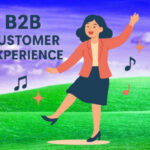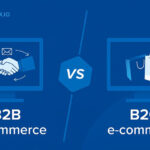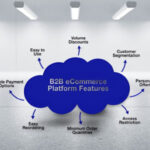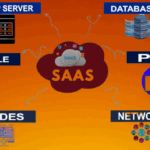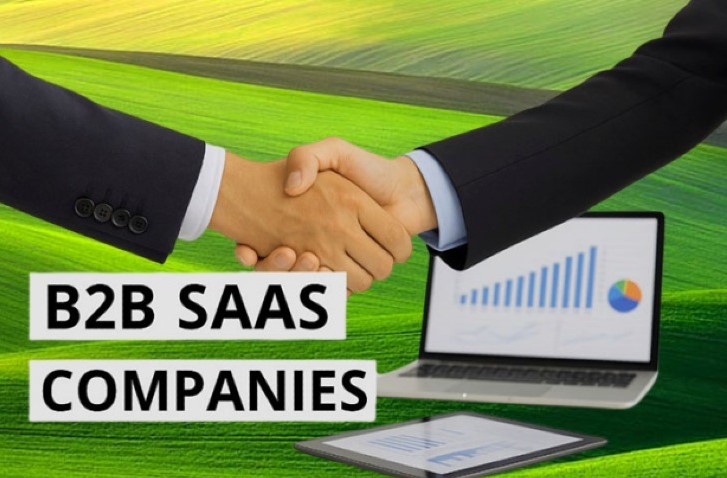
B2B SaaS Companies: Driving the Future of Enterprise Software
The world of software has been transformed dramatically over the past two decades. One of the most influential changes has been the rise of Software as a Service (SaaS). Instead of buying expensive software licenses and maintaining complex on-premises systems, businesses can now subscribe to cloud-based solutions that offer flexibility, scalability, and lower upfront costs. Among SaaS providers, B2B SaaS companies hold a unique and powerful position. These companies build and deliver cloud software solutions specifically tailored for other businesses, reshaping how organizations across industries operate, innovate, and grow.
This article will explore the landscape of B2B SaaS companies, their advantages, business models, challenges, and the future of this ever-expanding market.
Understanding B2B SaaS Companies
At its core, B2B SaaS refers to cloud-based applications designed for business use rather than individual consumers. Unlike B2C SaaS platforms—think Netflix or Spotify—B2B SaaS companies build solutions that help organizations streamline processes, collaborate more effectively, and gain insights that drive growth.
Some common examples of B2B SaaS offerings include:
-
Customer Relationship Management (CRM) software like Salesforce and HubSpot.
-
Enterprise Resource Planning (ERP) systems such as NetSuite and SAP Business ByDesign.
-
Collaboration platforms like Slack and Microsoft Teams.
-
Marketing automation tools such as Marketo or Mailchimp.
-
Accounting software like QuickBooks Online or Xero.
What makes B2B SaaS companies particularly impactful is their ability to solve complex problems for enterprises of all sizes—from startups to Fortune 500 corporations—without requiring massive upfront investment in IT infrastructure.
The Advantages of B2B SaaS
B2B SaaS companies thrive because they deliver a host of benefits that traditional software models often lack. Here are the key advantages:
1. Cost Efficiency
Instead of purchasing expensive software licenses and investing in servers, businesses pay a subscription fee. This “pay-as-you-go” model reduces upfront costs while providing predictable ongoing expenses.
2. Scalability
SaaS platforms are inherently scalable. A growing company can easily upgrade their plan, add new users, or integrate additional features without major disruptions.
3. Accessibility
Because SaaS applications are cloud-based, employees can access them from anywhere in the world. This supports remote work, global teams, and 24/7 operations.
4. Automatic Updates
Unlike traditional software requiring manual updates, B2B SaaS solutions are continuously improved and upgraded in the background. Customers always have access to the latest features.
5. Integration Capabilities
Modern B2B SaaS tools often include APIs and integration options that allow them to work seamlessly with other business software, creating an interconnected tech ecosystem.
Business Models of B2B SaaS Companies
While the subscription model is the hallmark of SaaS, B2B SaaS companies adopt different strategies to generate revenue. Here are the most common models:
1. Subscription-Based Pricing
Customers pay a recurring fee, often monthly or annually, for continued access to the software. This is the most common and sustainable model.
2. Freemium Model
Companies offer a free version of their software with limited features. To unlock advanced functionality, customers upgrade to paid plans. Slack and Dropbox are prime examples.
3. Usage-Based Pricing
Also known as the “pay-as-you-go” model, businesses are charged based on how much they use the product. Cloud hosting providers like AWS and Snowflake use this model.
4. Tiered Pricing
B2B SaaS companies often provide multiple subscription tiers to appeal to businesses of different sizes and budgets, offering basic, professional, and enterprise plans.
5. Custom Enterprise Solutions
Large enterprises may require highly customized versions of SaaS products. B2B SaaS providers often negotiate bespoke contracts for these clients.
The Competitive Landscape of B2B SaaS
The B2B SaaS market is booming. According to recent industry reports, the global SaaS market is expected to surpass $900 billion by 2030, with B2B solutions driving much of that growth.
Here are some categories of leading B2B SaaS companies:
-
CRM Leaders: Salesforce, HubSpot, Zoho.
-
Project Management: Asana, Monday.com, Trello.
-
Cloud Infrastructure: Amazon Web Services (AWS), Google Cloud, Microsoft Azure.
-
HR & Payroll: Workday, BambooHR, Gusto.
-
Cybersecurity SaaS: Okta, CrowdStrike, Cloudflare.
These companies compete on innovation, ease of use, security, and their ability to integrate with other business systems.
Challenges Faced by B2B SaaS Companies
Despite their success, B2B SaaS companies face unique challenges:
1. Customer Retention
Unlike one-time software purchases, SaaS companies must constantly prove their value to retain customers. High churn rates can devastate revenues.
2. Security Concerns
Businesses entrust SaaS providers with sensitive data. Any breach or failure in data protection can result in major reputational and financial losses.
3. Competition
The SaaS market is highly saturated. New entrants frequently disrupt established players with innovative features and competitive pricing.
4. Integration Complexity
While integrations are a strength, they can also become a hurdle. Enterprises often demand seamless compatibility with dozens of existing systems.
5. Scaling Infrastructure
As customer bases grow, B2B SaaS companies must invest in robust cloud infrastructure to ensure uptime, speed, and reliability.
Trends Shaping the Future of B2B SaaS
The next decade will see even greater evolution in the B2B SaaS space. Here are some transformative trends to watch:
1. AI and Machine Learning Integration
From predictive analytics to chatbots, artificial intelligence is becoming embedded in SaaS platforms. This allows businesses to automate repetitive tasks and gain deeper insights.
2. Vertical SaaS Solutions
Rather than serving broad industries, many new SaaS startups are focusing on niche verticals—such as healthcare SaaS, legal SaaS, or SaaS for logistics companies.
3. Remote and Hybrid Work Enablement
With the global shift to hybrid workplaces, SaaS collaboration and communication tools will continue to dominate enterprise adoption.
4. Data Privacy and Compliance
As regulations like GDPR and CCPA expand, SaaS providers must build stronger compliance frameworks to remain trusted partners.
5. API-First Development
An increasing number of SaaS companies are adopting API-first strategies, allowing clients to build custom solutions on top of their platforms.
Case Studies: Successful B2B SaaS Companies
Salesforce
Founded in 1999, Salesforce revolutionized CRM software by delivering it as a cloud-based service. Today, it is the world’s largest SaaS company, generating billions in annual revenue and enabling businesses worldwide to manage customer relationships more effectively.
HubSpot
HubSpot started as a marketing automation platform and has since expanded into CRM, sales, and customer service. Its freemium model has attracted thousands of small and medium businesses globally.
Slack
Now owned by Salesforce, Slack has become a cornerstone of enterprise communication, replacing email in many organizations with real-time collaboration channels.
Zoom
Although often seen as a B2C product, Zoom’s largest user base is businesses. Its scalability and ease of use made it essential during the pandemic, cementing its position as a top B2B SaaS provider.
The Future Outlook for B2B SaaS Companies
The trajectory for B2B SaaS companies remains extremely promising. As enterprises move further into digital transformation, reliance on SaaS platforms will deepen. The winners in this space will be those companies that:
-
Deliver seamless integration across ecosystems.
-
Provide robust data security and compliance.
-
Leverage AI to deliver advanced automation and analytics.
-
Offer flexible pricing models suitable for startups and enterprises alike.
-
Build customer-centric cultures that prioritize long-term retention over short-term acquisition.
For startups entering the space, opportunities abound in niche markets and specialized industries underserved by the current giants. Meanwhile, established SaaS providers will continue to expand horizontally and vertically, offering all-in-one platforms to increase customer stickiness.
Conclusion
B2B SaaS companies are reshaping how businesses operate in the digital age. They bring agility, cost savings, and innovation to industries that once relied on rigid, outdated software systems. While challenges such as competition and data security remain, the overall growth trajectory of the B2B SaaS industry is undeniable.
As more businesses embrace cloud-first strategies, B2B SaaS providers will play an even more critical role in driving efficiency, collaboration, and innovation worldwide. From CRM to AI-driven insights, these companies are not just offering software—they are powering the future of enterprise success.

